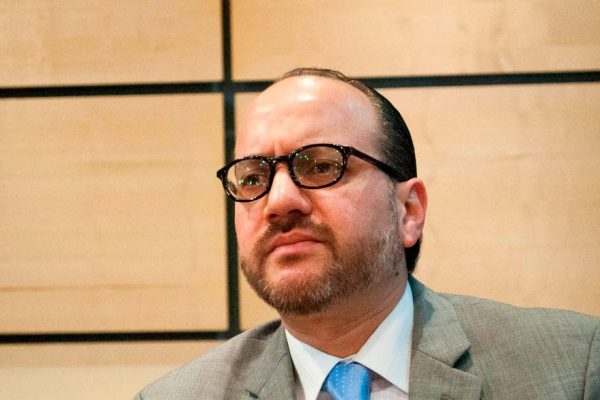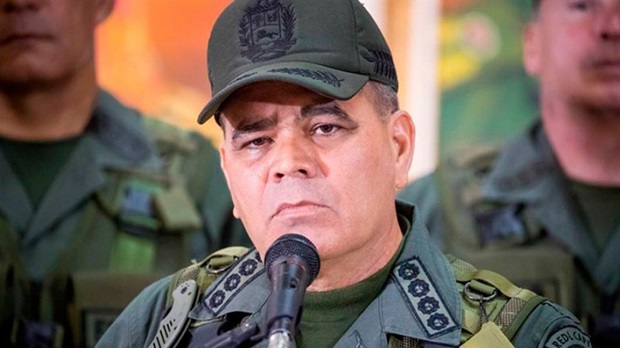“The National Constituent Assembly will remain active until December, it has already decided to do so, autonomously and under its competences.” In this way, during a videoconference with leaders of the ruling United Socialist Party of Venezuela (PSUV) on August 17, Nicolás Maduro announced that the questioned organ that he promoted in 2017 will not extend its mandate again and will be dissolved.
Days later, when asked during an interview as to whether the organ, whose legitimacy has not been recognized by more than fifty countries in the world, will fulfill its main task of drafting a new Constitution, the ruling party leader declared:
“We must ask Diosdado (Cabello), president of the great Constituent Assembly, about the status of the constitutional project, whether or not there will be a draft, and when will it be submitted for a referendum. The issue belongs to the Constituent Assembly, I do not have direct involvement in that topic”.
Nicolás Maduro
To Acceso a la Justicia, failing to present a draft for a new Constitution three years after the organ was established and advance a debate on the norms that it intends to modify or create is the strongest evidence that the 2017 National Constituent Assembly (ANC) had only one purpose: to neutralize the legitimate National Assembly (AN), elected in December 2015.
Given these events, we consider it pertinent to specify some aspects concerning the ANC. Therefore, we will answer eight relevant questions on the subject.
What is the ANC and what is its role?
According to article 347 of the Constitution, the ANC is a collegiate body that can only be convened by the people for the purpose of “transforming the State, creating a new legal system, and drafting a new Constitution”.
Is the current ANC constitutional?
No. In the first place, the instance was summoned by Nicolás Maduro without holding a referendum. Therefore, it lacks public legitimacy. Maduro convened the constituent process without consulting the people, a decision that was supported by the Constitutional Chamber through ruling No. 378. Second, the ANC has not fulfilled the objective for which it was created, no other than drafting a new Constitution; But the most serious thing is that it has gone beyond the scope described in article 347, to issue a series of arbitrary measures aimed at usurping the functions of the AN, at the same time that its real purpose has been to persecute political dissidents, in violation of the current Constitution.
If it has not drawn up a new Constitution, what has the ANC done so far?
In more than three years of work, it removed the Attorney General of the Republic, Luisa Ortega Díaz, and took control of the Public Ministry. Likewise, it assumed competencies of the AN to appoint the comptroller general and the ombudsman. It has also interfered in the work of the AN by legislating on questioned bills such as the Anti Hate Law, the Law on Fair Prices, the Law on the Budgetary Regime, and an Amnesty Law; it also stripped the parliamentary immunity off 22 deputies.
The ANC also interfered with the work of the Electoral Power when it called for state elections in 2017 and presidential elections in 2018.
Besides, it suppressed the Metropolitan mayoralties of Caracas and Apure. In the case of the capital city, the decision was made in contravention of article 18 of the current Constitution stating that “a special law will establish the territorial political unit of the city of Caracas that integrates into a two-levels government system the counties of the Capital District and the counties located in the State of Miranda ». This law was drawn up by the previous Constituent Assembly and it created the Metropolitan Mayoralty of Caracas.
In 2018, an alleged draft Constitution was leaked, which included part of the proposals that the late Hugo Chávez tried to incorporate into the Constitution in the failed constitutional reform that he promoted in 2007. However, the ruling party soon rushed to deny the existence of a document. “There is no draft Constitution. There are some ideas, the commissions are deployed throughout Venezuela, but nothing has been drafted, “said the president of the ANC, Diosdado Cabello.
Can the ANC limit the work of the authorities of the Public Power or decide on its cessation?
Article 349 of the Constitution establishes that the Legislative, Executive, Judicial, Citizen, and Electoral powers shall not impede the ANC’s decisions, but this does not mean that the ANC has absolute and uncontrolled powers, since it must be subject to democratic and republican values, in addition to international treaties and the progressive nature of fundamental rights. Precisely, one of the democratic principles is the separation of powers, an institutional guarantee of the rule of law. However, the ANC has violated this principle since 2017, by creating, modifying, or repealing laws that were competence of the AN.
Can the National Executive Power decide on the dissolution of the ANC?
No. According to the Constitution, the Executive Power (a constituted power) cannot decide on the cessation of the ANC’s operations since this organ is an expression of the sovereign will. Even though Maduro has not dissolved it and just cited the ANC’s decision to extend its term until December 31, 2020, the fact of him bringing up the issue -instead of the ANC itself- reveals how this organ has been an instrument at the service of his government. Acceso a la Justicia timely criticized the ANC for extending its mandate, after considering that the decision revealed improvisation and ignorance of the Constitutional Law.
When should the ANC be dissolved?
Once the drafting of a new Constitution is concluded, the Constituent Assembly must put an end to its operations, since it has already fulfilled its mission regardless of whether or not it is subsequently approved by the citizens through a referendum. However, this has not always been observed: the 1999 ANC decided to extend its activities until January 30, 2000, despite the new Constitution being approved by referendum on December 15, 1999.
Although a draft has not been presented yet, is it possible to have one before December?
People use to say “everything is possible,” and given the irregularities surrounding the 2017 constituent process and the abuse of power prevalent in the ANC, it would not be a surprise to call for a referendum on a new constitution along with the parliamentary elections, obviating any electoral guarantees or time to debate on the new text.
How can we define the 2017 ANC?
The current ANC is a true deconfiguration of constitutional principles, values, and norms. It has been used as an instrument by the National Executive Power to design and implement a de facto State to further consolidate the regime in power. The ANC represents a true constitutional fraud that distorts the nature of the constituent power and promotes a greater deinstitutionalization of the Venezuelan state, as stated by Acceso a la Justicia in its 2019 Annual Report.
How does it affect Venezuelans?
The announcement of the dissolution of the ANC makes it clear that its role was never to draft a new Constitution but to prevent the functioning of the AN, democratically elected in 2015.
The ANC is a very clear example of the termination of democracy in the country and it has come to worsen the pre-existing institutional breakdown and complex humanitarian crisis afflicting Venezuelans.
Having control over the Parliament is so important for the regime, that not only did it create a sort of parallel organ such as the ANC, but now that the term of the AN elected in December 2015 is about to expire, it spares no effort to carry out an electoral event on December 6 without any guarantee, seeking to regain control over the Legislative organ, and thus be able to govern on its own, as usual under Chavismo.
Translated by: José Rafael Medina




